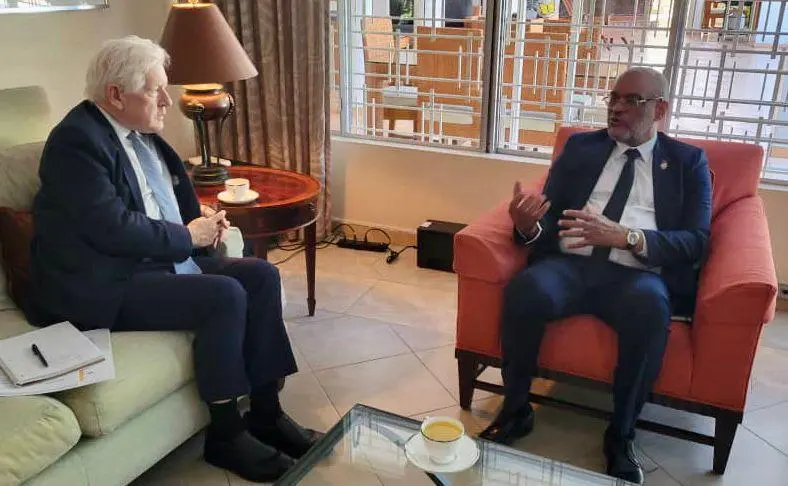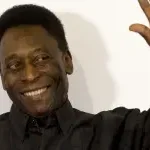n a mission to Haiti from December 7 to 9, Canadian Ambassador to the United Nations Bob Rae returned to his country after meeting with the top political, civil society and business leaders in Haiti.
Invited to give an account of his observation mission in Haiti for a few days on the program Midi Info on the airwaves of ICI Première, the Canadian diplomat said from the outset that “the State is not functioning well at all” in Haiti in comments relayed by Radio Canada in an article by journalist Hugo Prévost.
Several points including the issue of foreign military intervention, elections, insecurity among others were discussed with the diplomat in this interview.
Radio Canada recalls that Ambassador Bob Rae had two objectives during his trip to Haiti. First, he had to address the security issue and then try to pave the way for elections and a transition, more than a year after the assassination of President Jovenel Moise.
Regarding insecurity, Bob Rae said he has found that “criminal gangs are in charge of a majority of Port-au-Prince,” noting that they have also set up roadblocks on several major roads that crisscross the country from north to south, according to the Radio Canada article.
“This situation is causing a lot of problems for the population,” said the diplomat, pointing out that there is a glimmer of hope resulting from the sanctions imposed by the international community against certain oligarchs and criminal groups. “Things are starting to improve a little,” he said.
The diplomat believes that Haiti is still waiting for help from the international community, including Canada.
When asked whether that help should take the form of foreign military intervention, an idea that has been discussed in recent weeks, Rae hesitates, says Radio Canada.
My personal opinion is that there may be room for foreign police and armed forces to help, but it won’t be by replacing the Haitian National Police (HNP); we need to support them,” he says.
”We’ve had big [military] interventions in the past, but it hasn’t worked, because the situation goes back to what it was before when the troops leave,” Mr. Rae added in this interview.
The diplomat also spoke about the election issue, which was the other aspect of his mission, according to the CBC article.
More than a year after the assassination of President Jovenel Moise, the crisis persists, as no elections have been held to renew the country’s political personnel.
On this point, diplomat Bob Rae believes
that in Haiti, the political class is not fully aware of the urgency of the situation. “We need to move things forward. I’ve been trying, in my conversations, to shake things up a bit,” he says.
“We are here to help improve the situation” assures Bob Rae in this article by journalist Hugo Prevost.
Arriving in the country on Wednesday, December 7, the Canadian ambassador to the United Nations Bob Rae met with Prime Minister Dr. Ariel Henry to discuss “how to address all the challenges facing Haiti,” according to what was reported by the Canadian Embassy on its Twitter account. This meeting took place in the presence of the Canadian Ambassador to Haiti Sebastien Carriere, the Director General of Central America and the Caribbean Sylvie Bedard.
In a second step, the Canadian delegation met with members of the Montana Agreement Monitoring Board and the elected president of the agreement Fritz Jean and the elected Prime Minister former Senator Steeven Irvenson Benoit.
It was discussed during this meeting to find the best “way to reach a political consensus” according to what was reported by the Canadian Embassy.
The delegation also had an “excellent meeting with university professor and former presidential candidate Jacky Lumarque on ways to overcome the current political impasse by listening to a wide variety of perspectives and voices throughout Haiti,” reports the Canadian Ambassador to Haiti Sebastien Carrière.
Ambassador Bob Rae also met with business people and leaders of civil society organizations.







